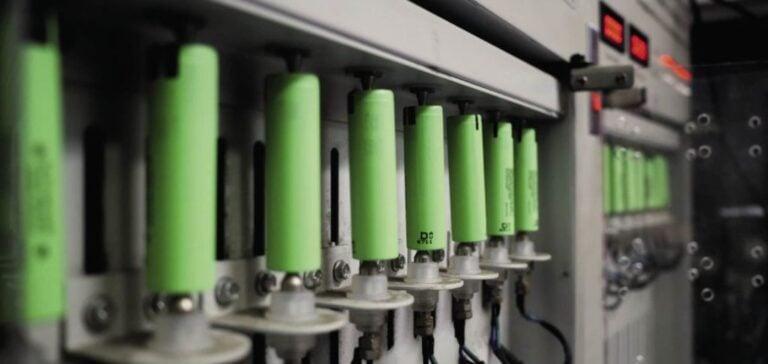Ace Green Recycling, a major player in battery recycling technology, has announced a merger with Athena Technology Acquisition Corp. II (ATAC II). This strategic move will allow Ace to become a publicly traded company, valued at $250 million, and strengthen its activities in the energy storage domain through the development of new facilities.
The company plans to establish a flagship plant in Texas to recycle lead and lithium-ion batteries. This initiative addresses the growing demand for strategic materials, particularly in the electric vehicle and energy storage sectors.
Technology and Commercial Capacity
Ace has two key technologies for battery recycling:
1. **LithiumFirst™**: This technology processes various types of lithium-ion batteries, enabling the recovery of lithium and other essential components. It provides a proven solution to maximize material extraction.
2. **GREENLEAD®**: This specialized technology processes lead batteries with notable efficiency, meeting the needs of the global energy storage market.
Ace’s commercial capabilities are already established, with operational facilities in India and Taiwan. Together, these plants have recycled over three million pounds of batteries, consolidating the company’s expertise in this field.
Market Experience and Strategic Partnerships
Ace’s business model relies on diversified revenue streams through direct operations, licensing agreements, and partnerships with suppliers and international companies. A 15-year supply agreement has been signed with Glencore, a major player in natural resources, ensuring a stable flow of raw materials and a reliable outlet for recycled products.
The company currently generates an annual revenue of $23 million and expects profitable growth by 2026, leveraging a modular strategy and a flexible economic model.
U.S. and Global Perspectives
The planned plant in Texas will play a key role in Ace’s expansion into the U.S. market. In addition to increasing recycling capacities, it will position the company as a strategic supplier of essential materials for energy storage, helping to secure domestic supply chains.
With development projects in Europe and Israel, Ace aims to expand its global presence while continuing to diversify its activities in the lithium-ion and lead battery sectors.





















